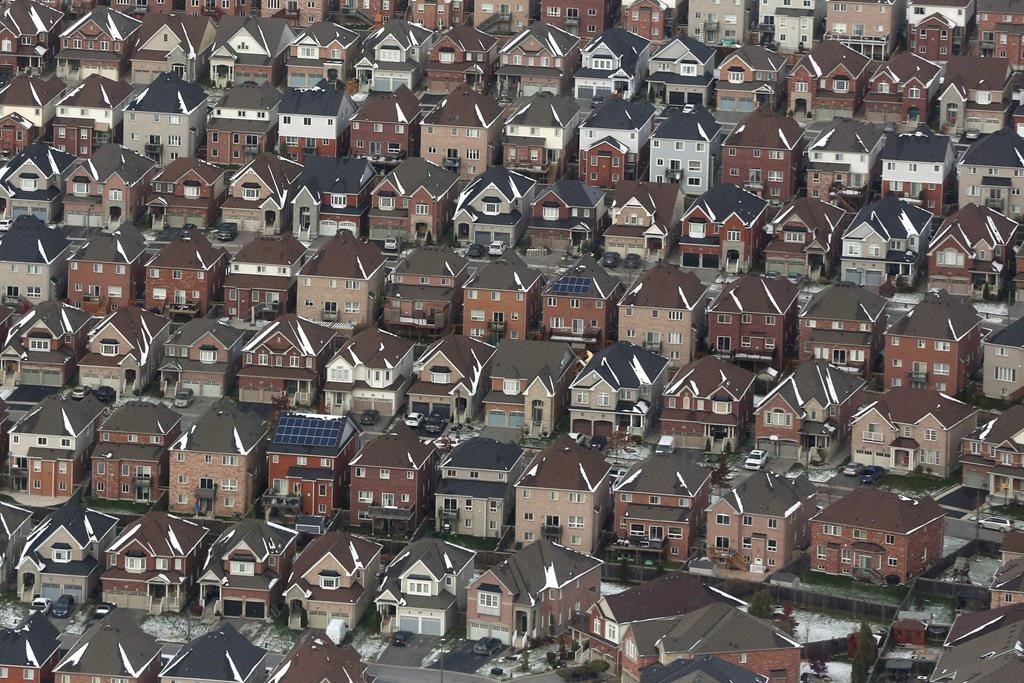This is the first federal election in which millennials will outnumber boomers as a voting demographic. As in any election, everyday affordability issues are top of mind for most average voters, and millennials are no different.

What is particular to this generation of younger voters, however, is that the economic environment we have inherited from our parents is one that leaves us worse off than our parents in a lot of ways.
READ MORE: Millennials can have a very strong voice in deciding Canada’s future — if they vote
Defined benefit workplace pensions are virtually non-existent, so-called side hustles are increasingly necessary to make ends meet, contract work and the gig economy make it rarer to have full health coverage for things like dental, vision and prescription drugs — and if you’re in an urban centre in Canada, then you can also add impossibly high housing costs and competitive rental markets to your woes.
Let’s focus on housing as an affordability issue, as the Liberals, Conservatives, NDP and Greens have all made policy proposals on the housing front. In talking about issues involving housing, the framing and implication seem to be that rental and sale prices are only really bad in big cities like Vancouver, Toronto and Montreal.
While prices for both rentals and sales are, indeed, particularly bad in the country’s larger urban centres, even in smaller cites, people are feeling the pinch. Last month, the CBC reported that Charlottetown’s rental vacancy rate hovers just above zero per cent, and low-income renters there spend just over 60 per cent of their earnings on housing. The issue of unaffordable rent is exacerbated by the fact that Canada’s housing policy has prioritized homeownership over renting over the last few decades.
Yet, the responding policies from our politicians are painstakingly predictable and, for the most part, miss the mark on what’s actually needed to help with affordability by overemphasizing homeownership measures over renting.
READ MORE: What the Trudeau government has done on housing affordability
The reality is that even with many of the policy proposals enacted, actual members of the middle class will never make enough money to own a single, detached home in Toronto, Vancouver or Montreal. The median household income in Toronto is around $75,000, and the average price for a detached home in the city is $1.23 million.
Look at the average price for all properties in the entirety of the Greater Toronto Area, and that number drops to $806,755, which is certainly better than $1.23 million but isn’t exactly what one would classify as affordable.
- Posters promoting ‘Steal From Loblaws Day’ are circulating. How did we get here?
- Video shows Ontario police sharing Trudeau’s location with protester, investigation launched
- Canadian food banks are on the brink: ‘This is not a sustainable situation’
- Solar eclipse eye damage: More than 160 cases reported in Ontario, Quebec
So, unless everyone vying to buy a house in Toronto and the 905 is coming from vast family wealth, they are, to put it mildly, very screwed.
READ MORE: How high on the income ladder do you need to be to afford a home in Canada?
Ah, I can hear some reading this now echo the common refrains we hear about my generation. Millennials are just spoiled brats eating too much avocado toast! There are places to live other than Toronto and Vancouver!
Firstly, I’m not sure how much boomers think avocado toast actually costs, but I can assure you the average millennial does not spend the six figures needed for a down payment — and that they don’t have — on a mostly mushy fad breakfast.
Secondly, as I’ve already noted, prices in smaller cities don’t exactly make them financial utopias. According to research conducted by Generation Squeeze, a campaign run by University of British Columbia professor Paul Kershaw, housing prices would need to fall by nearly half for millennials to be able to afford a home. Or, if housing prices don’t fall by nearly half, then millennials would need to up their earnings by nearly double.

Assume there is no housing crash, simply a cooling of the market because interest rates have risen. Housing prices don’t go down to the levels they were over a decade ago but merely a few years ago. That could still be potentially catastrophic for someone who, at the behest of irresponsible politicians, real estate agents and lenders more than willing to dole out mortgages and lines of credit to people, has indebted themselves beyond what has normally been considered reasonable.
If you can’t afford your mortgage should interest rise by two percentage points in this current environment of incredibly low rates, then you have no business buying a house. Politicians need to be honest about this instead of peddling the dead dream of homeownership for most middle-class millennials.
Canada needs more rental housing — actual apartment buildings that people rent and only rent. That’s the aspect of housing affordability politicians should be focused on.
Supriya Dwivedi is co-host of The Morning Show on Global News Radio 640 Toronto and a columnist for Global News.









Comments